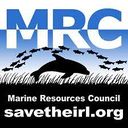Unit:Marine Resources Council
Marine Resources Council (MRC)
To improve water quality and to protect and restore the fish and wildlife resources of the Indian River Lagoon, coastal waters, inshore reefs, and the watershed by advocating and using sound science, education and the involvement of the public at large.
Hierarchy
Contact
Disclaimer: This information is for organizational purposes only. The presence of an Organization's information on this Website should not be viewed as an endorsement of the Website by the Organization. Nor should an Organization's presence on the Website be viewed as an endorsement of the Organization by the Website.
The MRC is aiming to publish and maintain the first ever comprehensive health analysis of the entire Indian River Lagoon ecosystem to guide restoration and policy for protecting and improving the water quality and quality of life for the east coast of Florida.
The organization is also aiming to partner with local municipalities to create Low Impact Development standards to ultimately implement statewide, which would result in the infiltration, evapotranspiration or use of stormwater in order to protect water quality and associated aquatic habitat. Urbanization increases the variety and amount of pollutants carried into our nation's waters. In urban and suburban areas, much of the land surface is covered by buildings, pavement and compacted landscapes. These surfaces do not allow rain to soak into the ground which greatly increases the volume and velocity of stormwater runoff. In addition to these habitat-destroying impacts, pollutants from urban runoff include: sediment, oil, grease and toxic chemicals from motor vehicles, pesticides and nutrients from lawns and gardens, viruses, bacteria and nutrients from pet waste and failing septic systems, road salts, heavy metals from roof shingles, motor vehicles and other sources, thermal pollution from impervious surfaces such as streets and rooftops, these pollutants can harm fish and wildlife populations, kill native vegetation, foul drinking water, and make recreational areas unsafe and unpleasant. With Low Impact Development practices we can reduce and reverse the negative impact we have on our environment.
MRC executes science-based research and gathers consensus through invested stakeholder groups to educate the community and steer policy. The organization manages many outreach programs to reach and educate the diverse coastal communities for the adoption of positive changes in behavior for the well-being of Florida's water resources and environment. MRC programming includes a presidential award winning Lagoon Watch citizen science water monitoring program, a citizen science muck mapping program, a citizen outreach speakers bureau, a water saving rain barrel program, a citizen science mangrove farming program, a shoreline restoration program, a groundwater/wastewater monitoring program, a green business sustainability program, adult and youth education programs. MRC also manages the Ted Moorhead Lagoon House Learning Center/IRL National Scenic Byway Welcome Center, the South East North Atlantic Right Whale Monitoring and Conservation Program, a volunteer, internship, and membership program, a conservation awards program, and many annual events to advocate for positive change. For more information please visit SaveTheIRL.org.
